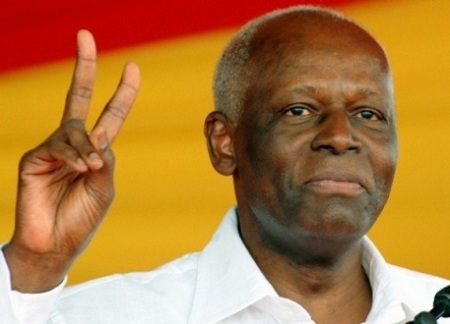It wasn’t a surprise — Angola’s president José Eduardo dos Santos has won reelection, following the parliamentary victory of his Movimento Popular de Libertação de Angola – Partido do Trabalho (MPLA or the People’s Movement for the Liberation of Angola – Labour Party) after elections on Friday, September 1 with nearly 74% of the vote.![]()
Read about the run-up to the election here — no one predicted that the elections would be free or fair.
From Reuters:
The provisional results gave the MPLA’s closest challenger, former rebel group UNITA, nearly 18 percent, while the third-placed CASA-CE party was approaching five percent in its first election test after being formed by UNITA dissident Abel Chivukuvuku four months ago.
Chivukuvuku told reporters his party, which along with UNITA had complained repeatedly of serious irregularities in the vote preparations and the electoral process, was analysing the results before deciding whether to accept or reject them.
But another prominent CASA-CE member, candidate for Luanda William Tonet, dismissed the provisional results as “cheating taken to its maximum level”.
“This is like a declaration of war by the MPLA … it indicates to citizens that there can be no alternative through the electoral route,” he told Reuters.
